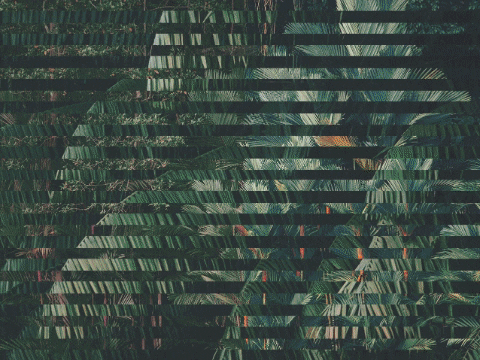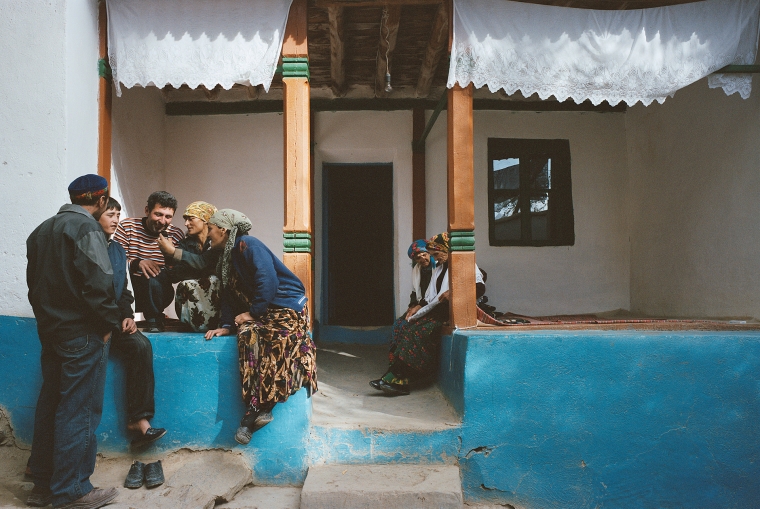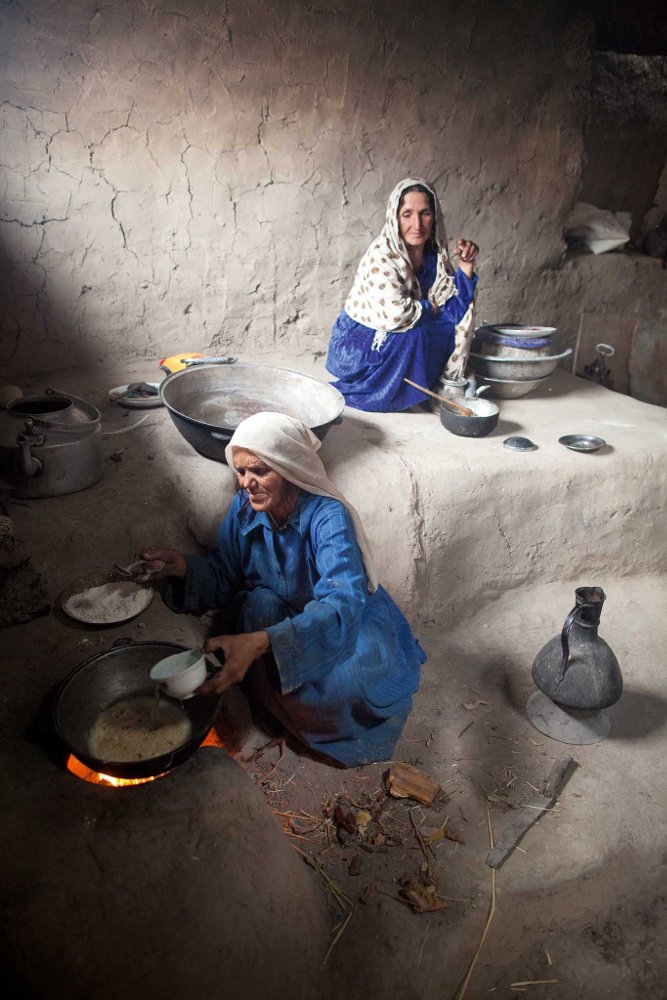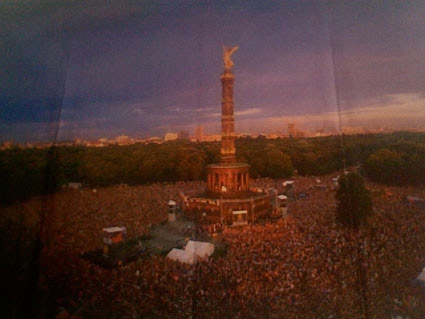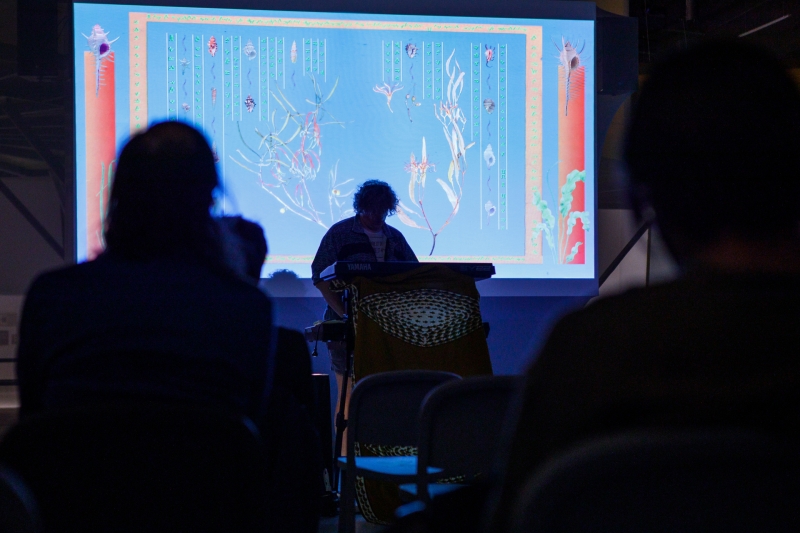MAAT MODE — THE PEOPLE INTERVIEWS
This series of informal conversations aims to disclose the ideas and research behind a selected number of projects commissioned for maat Mode 2020. Some of these dialogues were recorded during the lockdown in April and May 2020, while others were held live in the maat Media Room, a space designed as part of Beeline, SO – IL’s museum-wide architectural intervention.
“What happens when we re-evaluate the past? When, bound by no rules, we rewrite history, deconstruct clichés and reassemble preconceptions into a new and daring landscape?”
maat / Matilde Neves
I am here with Gonçalo F. Cardoso, founder of Discrepant Records, who wants us to reconfigure our perception of history and traditional thinking to shape a brave new vision of the past, present and future. So Gonçalo, please tell us briefly about your journey? When did you start Discrepant?
Gonçalo F. Cardoso
I started Discrepant around 2010, whilst living in London. It’s been over ten years now and since then the label has followed me wherever I go. That could be London, Lisbon, or when I was living in East Africa, or travelling wherever. Currently, it’s in the Canary Islands mostly. For the last 3 years or so I have been running it from here. The label follows my restlessness and the various geographic locations I find myself in have a strong influence on what I do or decide to do. So, the question was when, right?
maat
Yes, when and why…
Gonçalo F. Cardoso
Why did I start it? Well, because I felt there was a lot of music I loved that wasn’t being released or archived the way I felt it should. Since then, I think things have changed a lot. I wasn’t the only one back then of course, but I think I was doing things my own way and releasing music that uses tradition in a more corrosive and disruptive way, where not everything needs to make sense or fit into a genre or style in a record shop section.
I started mainly as an online blog and then, little by little, I began to release records on vinyl, because again, that goes hand in hand with the idea of an archival format that could or should last forever. Since then I’ve been releasing almost an album a month every year, so it’s been a crazy, crazy ride.
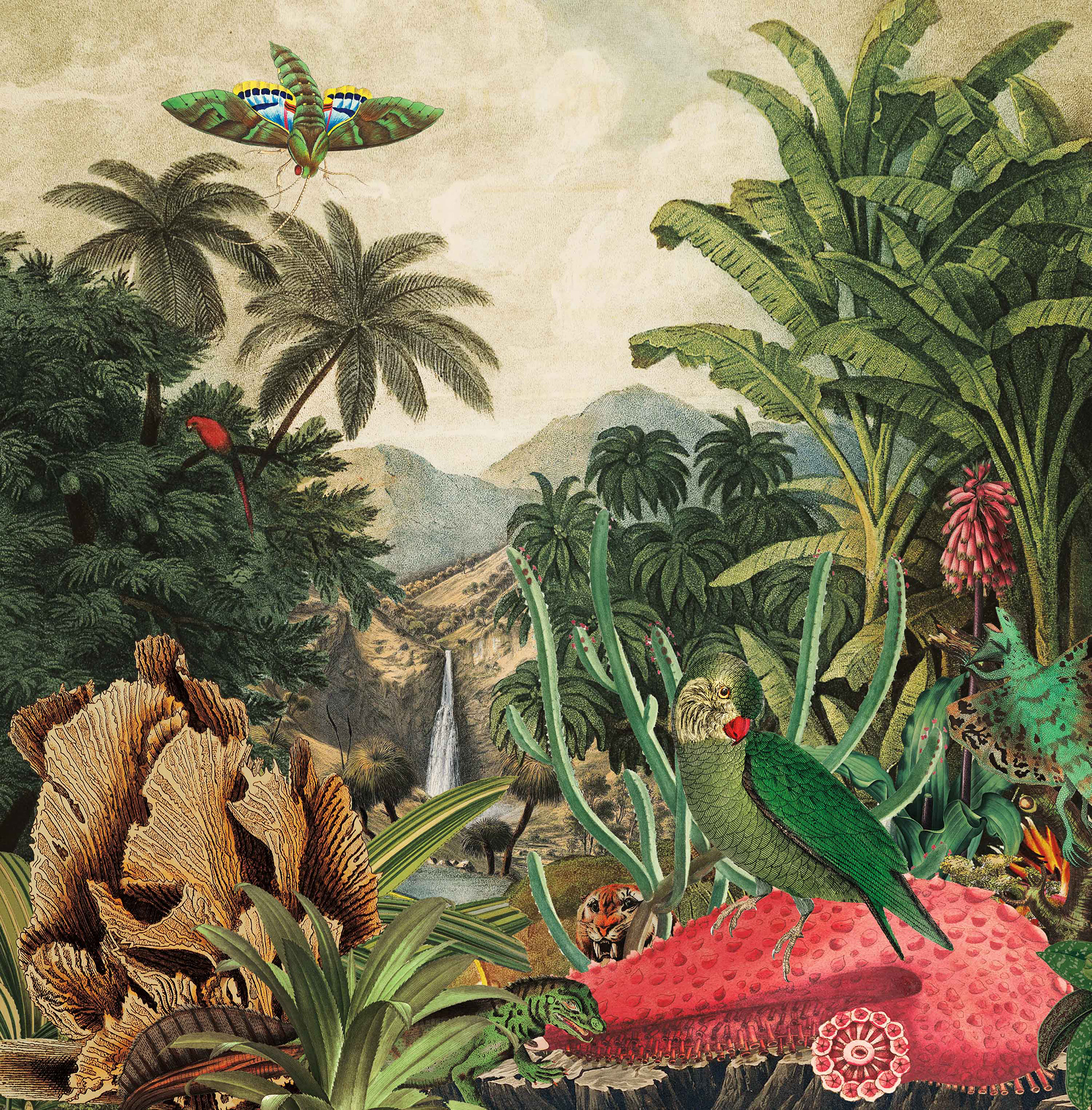
Cover art for Lagoss’ eponymously named album, by Evan Crankshaw.
maat
Quite a lot of albums, I imagine.
The programme Atypical Traditions, commissioned by maat and curated by you, involves, in addition to the live performances, a series of playlists compiled from the Discrepant catalogue. Could you explain the project to us, beginning with its title?
Gonçalo F. Cardoso
The Atypical Traditions project was something I started as a Portuguese anthology series of albums; it’s currently on its second volume. Anthology of Portuguese Atypical Music Vol. I, II etc.; there is a theme to each one, and the idea is to invite Portuguese artists to interpret a particular theme or mood. I first started out with the idea of reinterpreting folk songs but I quickly realised I was being too restrictive and that didn’t make any sense. So, I decided to interfere with each artist’s contribution as little as possible, and just let them run free with it. I would say: “give me whatever you feel this inspires you to” and the idea was to be a bit less academic or formal about the way we present a certain tradition or a country’s musical heritage. So, I would play with that idea, I would present the album as if it were an ethnographic document but it wouldn’t be ethnographic at all. It would just be a personal survey, like an underground compilation of music from Portugal or a compilation of Portuguese experimental music, whatever. I highjacked this idea of “traditions” and developed it into something broader.
I’m hoping to be able to apply this concept to different countries and cultures as well as events (like these ones at maat), working with local artists that understand and appreciate the concept.
As far as the Sound Capsules are concerned, I selected artists and songs from the Discrepant catalogue in order to present a collage-like preview of artists that would be performing that week. In most cases, they are artists whose work has been released on the label. So, it’s a kind of preview playlist of what’s to come that week.
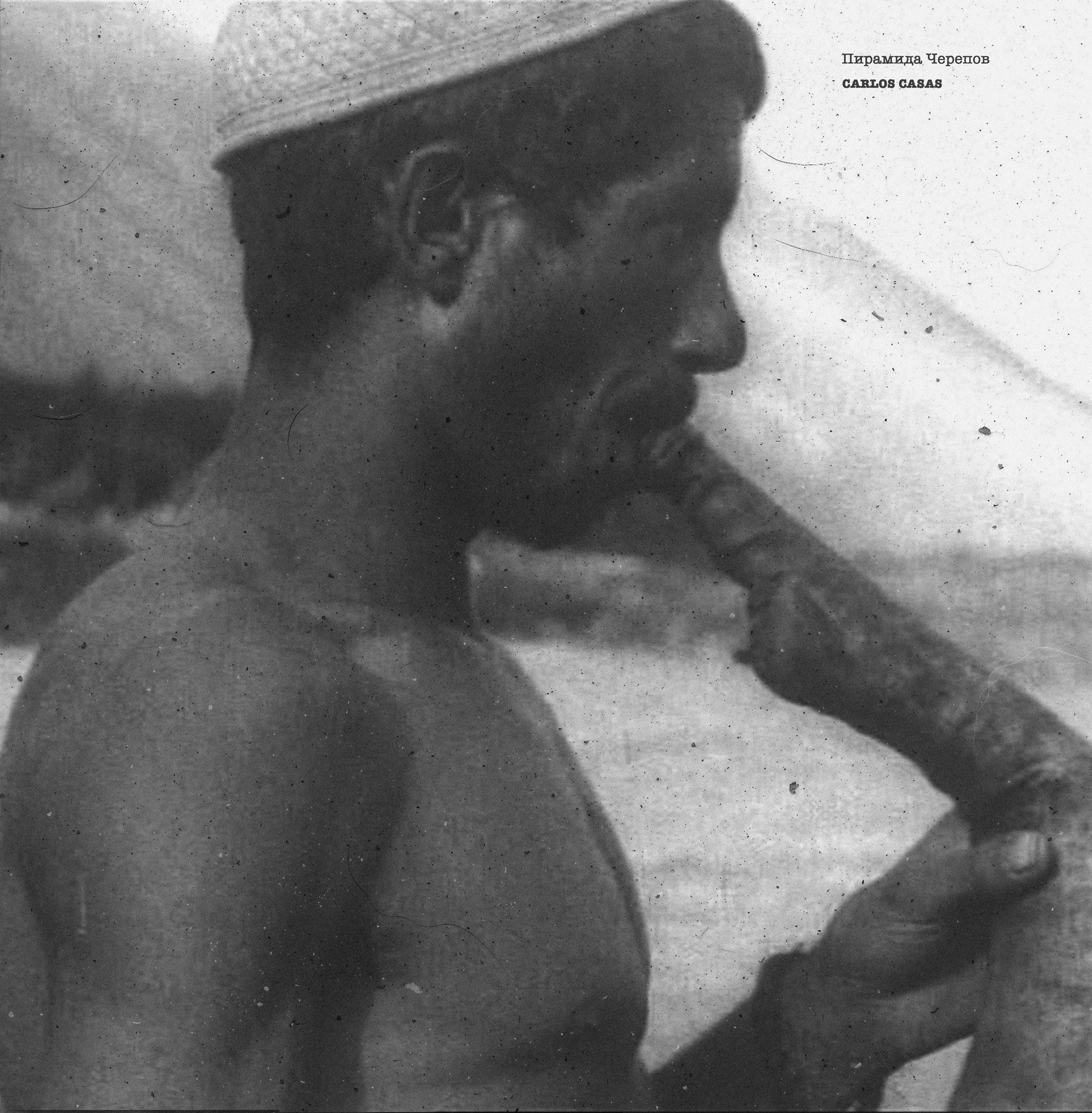
Cover art for the Carlos Casas album “Pyramid of Skulls”, by Gonçalo F. Cardoso and Carlos Casas.
maat
So, the end-product will either be a new vinyl or a new project.
Gonçalo F. Cardoso
Maybe, maybe…
maat
Could work out quite well.
The live performances and sound capsules are divided into four moments: Visions at the End of the World; Lost Futures; 4th World Wonders, and Do you Miss The Present? Can you tell us how this unfolds and explain the choices you’ve made?
Gonçalo F. Cardoso
I dreamed up a list of artists that I know and would find it interesting to work with, and then tried to conceptualise a general idea that would fit with each artist’s sound; I’m a big fan of concepts and adding reference points to the music. A lot of this music is experimental, so I think it’s important to have a frame of reference – it may not always be obvious to everyone, but it’s a good thing for me personally. So, for the first evening, which was Carlos Casas and Niagara, entitled Visions at the End of the World, I mostly focused on Carlos’ work and the way he presents remote and inhospitable places in his films. He just puts himself through it all and travels to these remote places, documents them as an observer, so they become these visions that we probably would never experience because we don’t have the time or the desire to go there. Carlos strikes a great balance between observational film making and his own artistic vision, an artistic observational eye. In other words, it is what it is, but with a reinterpretation from someone that comes from a fine arts background where he can develop a different language around it. That was also the case with Filipe Felizardo, a live reinterpretation of the original soundtrack.
The same with Niagara, they are very free flowing in their manner of composing and performing. They also have this strong cinematic feeling to their music even if you don’t have visuals, you’ll still get a strong visual perception with their music – in this case a more fabricated vistas concept or remote utopias/dystopias, real or not. What’s the second one, Lost Futures?
![]()
Cover art for the Star Searchers album “Avatar Blue”, by Spencer Clark.
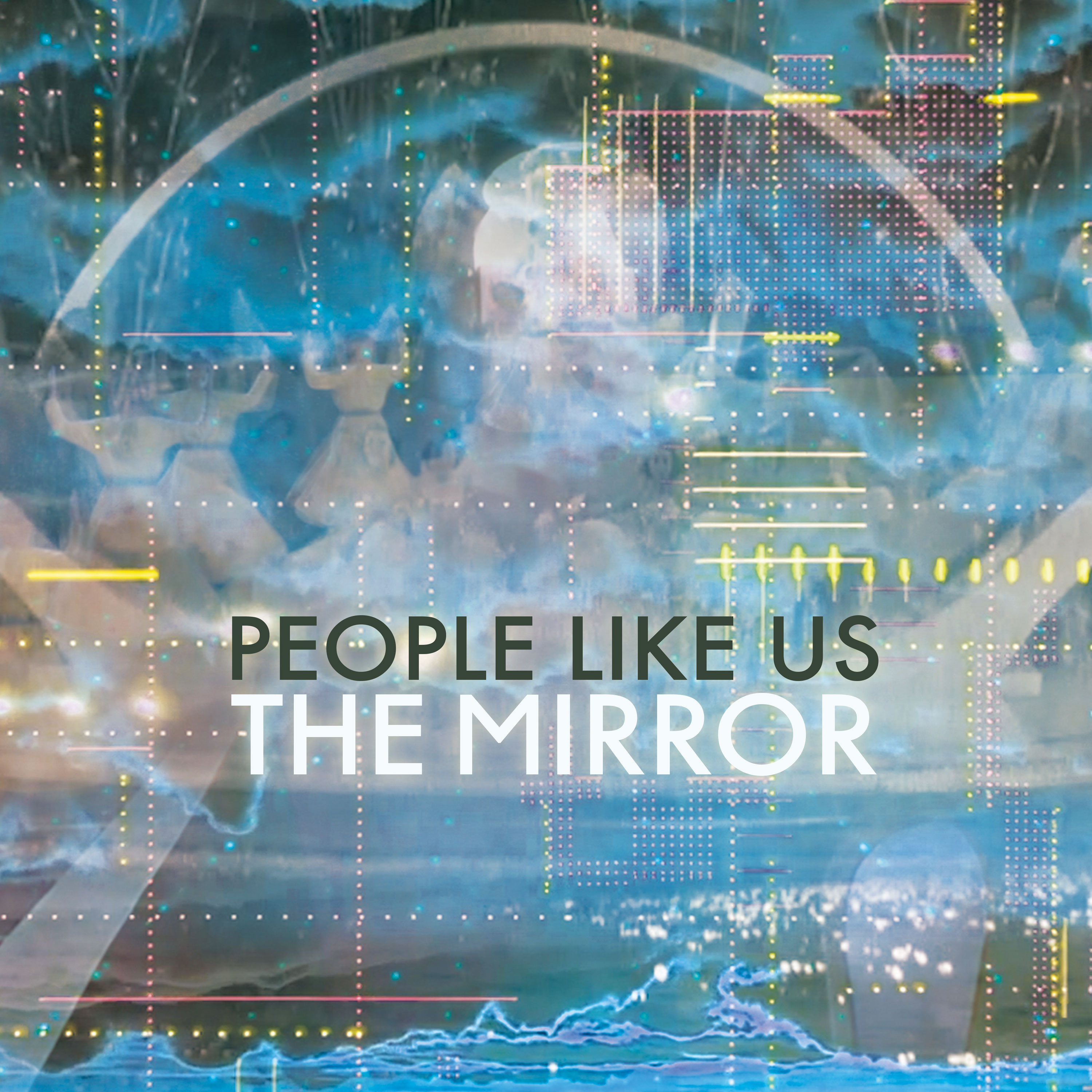
Cover art for the People Like Us album “The Mirror”, by Vicki Bennet.
maat
The second is Lost Futures, which will take place on 11 September.
Gonçalo F. Cardoso
Yes, on 11 September Lost Futures. It wasn’t supposed to take place in September and now, with the pandemic delaying everything and all, 11 September seems like the perfect day for it. It’s become a sort of semi-apocalyptic vision, what with the current pandemic and the concept in question. So, Lost Futures, to my mind, is this idea of a nostalgic view from the present based on a past future which will no longer exist but which we still yearn for. Both artists on the evening, Bruno Silva (Ondness) and Folklore Impressionista, work, either literally or not, this idea of “hauntology”, where we yearn for a future that will never exist but could have existed. We’re haunted by this idea of a possibility, a utopian possibility, a future that could have happened but never did. So, that’s kind of the concept for Lost Futures, without trying to be too nostalgic or negative about it.
maat
Yes, with a more poetic approach, you have Fourth World Wonders. Where you will also perform?
Gonçalo F. Cardoso
I’ll be there with my new project Lagoss, with two musicians from Tenerife (Tupperware) and Spencer Clark (Star Searchers) joining the proceedings as well. Fourth World Wonders is a simpler kind of approach to this music that evokes a faraway imaginary place through the merging of various cultures, a remote familiarity that doesn’t really exist. In the specific case of Spencer Clark (Star Searchers), he is now working on, weirdly enough, the soundtrack for an unmade Avatar film, which evokes various imagined organisms, mostly underwater; so it’s a kind of 21st century Atlantis, a submerged world. He wanted to do it before they actually release the film in 2021, I think. Spencer has been involved in so many world-building musical projects, where he comes up with an entire concept and backstory. The evening’s theme comes from this idea devised by Jon Hassell, where an alternative world is created by merging modern electronic music with so called ethnic tinged melodies or instruments. It becomes this strangely recognisable but brand-new musical world, something completely surreal and made up. The same can be said for Lagoss. Lagoss borrows from the exotica playbook of sounds, making it into a schizophrenic sketchbook of things, where the idea is to express life within an island, an insular piece of land, an inhabited imaginary island where everything is concentrated in a fairly small place. So, anything goes really, and the music tries to reflect this with its various microclimates and microorganisms that switch very quickly from one to the other, a frenetic approach with pleasant and unpleasant moments.
maat
And it’s that idea of no way out, in a sense. It’s an island…
Gonçalo F. Cardoso
Yes, and we also build strongly on the concept of the lost phantom island where a lot of islands appeared in maps for about 500 years until we realised they don’t exist at all. We also use that as a reference for something that no longer exists within the Fourth World Wonders concept.
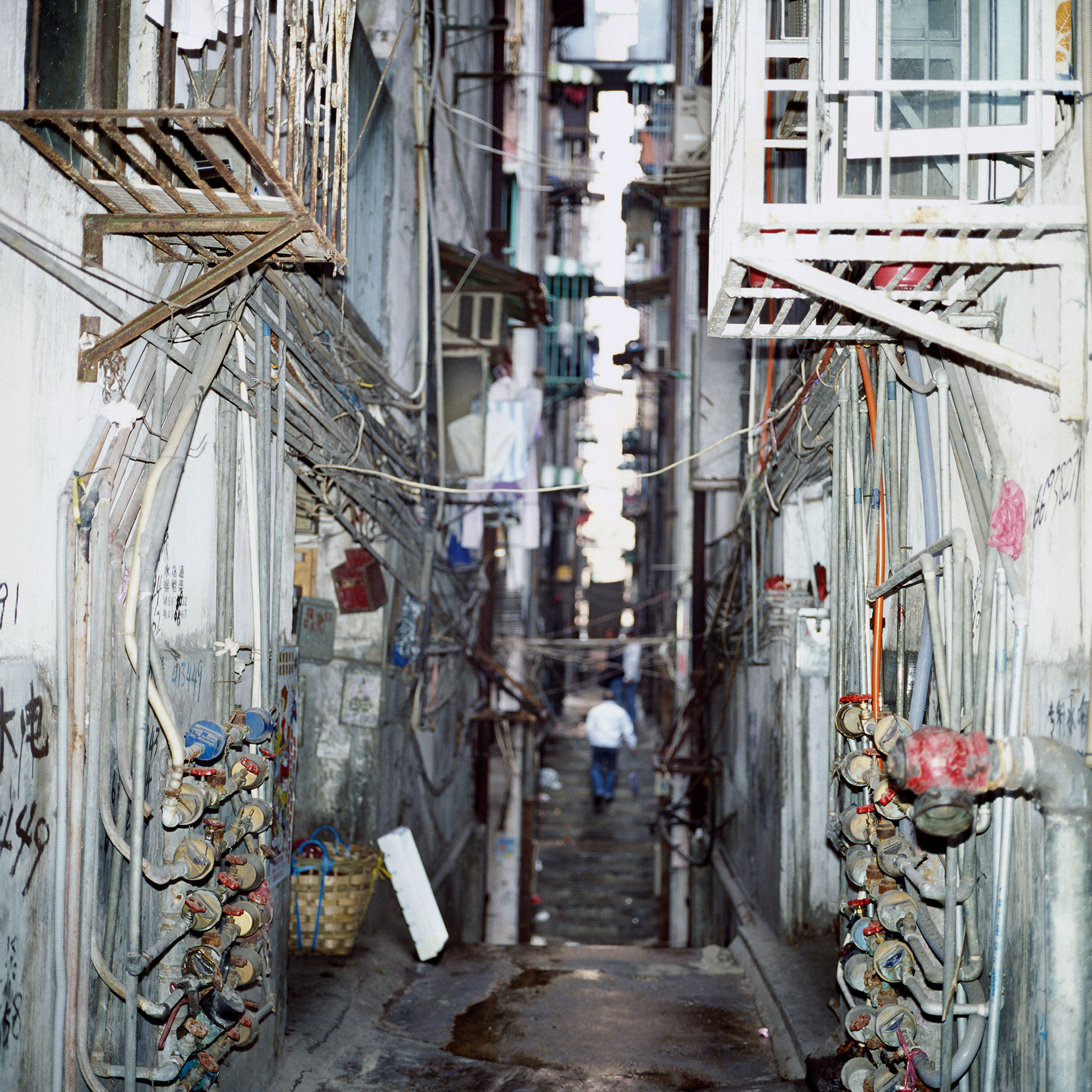
Cover art for Ondness album “Meio Sumiu”, by António Júlio Duarte.
maat
Yes. And we finish with Do You Miss the Present?
Gonçalo F. Cardoso
Do you Miss the Present? is kind of a succinct way of summing up all projects. Both artists are very connected within the music collage world, and they both have a lot of humour in their approach to politics, pop culture and current world affairs. They use popular culture past and present as a way to extract various diverse feelings and ideas. Do you Miss the Present? becomes more of a joke, i.e., that we’re not living in any particular moment anymore, everything is post-something or other. In the same way we mourn a lost future with the Lost Futures theme, Do You Miss the Present? suggests that the present doesn’t exist, so it’s kind of a joke about the concept of everything being considered post. You know this idea of post-everything, we live in a post-everything era, post-truth, post-modern, and so on. Everything is taken to the second, third, fourth, fifth degree… So, in this case, with Porest and People Like Us, they recycle popular culture, turn things inside out and spit out this surreal fusion of concepts and nonsense that makes up our present, in a way.
maat
Yes, that idea of nothingness is a real experience in a way.
Gonçalo F. Cardoso
Nothing is true or real anymore, but nothing is fake either. So, it’s like a post-modernist approach to art and music.
maat
It makes a lot of sense considering what we’re going through now, what with this…
Gonçalo F. Cardoso
Totally, and that’s why it’s the last one, too.
maat
What do you want to achieve with Atypical Traditions? And how do you believe, I mean you did kind of speak about this, but how do you believe it’s relevant at this moment in time? The present does not exist.
Gonçalo F. Cardoso
I guess it’s just a way of making people think about certain ideas and how we decide what’s real, what’s “pure”, and what’s not. There’s no such thing as pure folk music, for example, nothing is totally closed off within its own nucleus. I believe it’s all in constant evolution and it’s just a matter of perception.
So, what do I want to achieve? I guess just to provoke a bit of thought around each concept. There are four different ones, although they are inter-connected. I guess it’s really about how music can also translate very vivid ideas, particularly concepts about other things that you wouldn’t normally associate with music, as well as going into the past, the present and the future of so-called traditional thinking.
maat
Yeah, not at all. Tradition is also something we always associate with the past, but it’s always in the present when you try to…
Gonçalo F. Cardoso
Exactly, exactly, we never think about it in a future sense or even in the present tense. How we got to this point; how did this folk tradition get to where it’s at, this sound or style, we just... We preserve it as something in the past when the same thing might be going on in the present, we never look at what we’re doing currently as a folk artefact and we never look at future actions, because we don’t know what they could be or we can only assume… Well, I’m assuming and having fun with it.
maat
Ok, thank you so much, Gonçalo, for taking this time for us. We look forward to the completion of the programme and what’s yet to come.
Gonçalo F. Cardoso
Thank you! Me too.

Cover art for Porest album “Flimsy Tomb”, by Mark Gergis.
Gonçalo F. Cardoso is an itinerant sound artist, founder and day-to-day director of Discrepant Records (and its sub-labels Souk, Sucata Tapes and Farsa Discos). Over the past few years, he has been performing all over the world as a DJ and musician. His LP, “A Study into 21st Century Drone Acoustics”, a collaboration with Ruben Pater, won the Ars Electronica jury prize in 2017. Between 2011 and 2019 he released several albums under his most persistent alias, Gonzo (other names used are Visions Congo, Prophetas, Papillon). Currently in transit between the Canary Islands, Lisbon, London and the rest of the world, Gonçalo keeps himself very busy with his own music, collaborations with local artists and musicians and managing the ever-expanding label catalogue.
Atypical Traditions, curated by Gonçalo F. Cardoso, is a music programme that aims to reconfigure our idea of history and traditional thinking to shape a brave new vision of the past, present and future. Taking a no-holds-barred attitude to the past and proposing a complete reinterpretation of the future, artists from different backgrounds and geographies (Portugal, Spain, US, UK) present new musical perceptions that try to find new meanings in an everchanging ultra-globalised society. In keeping with each theme — “Visions at the End of the World”, “Lost Futures”, “4th World Wonders” and “Do You Miss the Present?” — each proposal develops an idea of alternative spaces in which visitors can travel and dream beyond the limits of comprehension. In addition to the live performances, a series of playlists, compiled from the Discrepant catalogue, can be heard on the Sound Capsules, maat Mode's audio stations, and online, in a condensed version.


